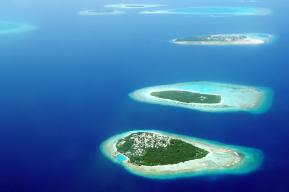Article
Experts Comment on the Existing Mechanisms to Guarantee Access to Environmental Information

Youth Multimedia Room
The article was produced by the Youth Multimedia Room. The views and opinions expressed in this article are those of the contributors of the Youth Multimedia Room and do not represent the views of UNESCO or its partners. The designations concerning the legal status of any country, territory, city or area, or of its authorities, or concerning the delimitation of its frontiers or boundaries do not imply the expression of any opinion whatsoever on the part of UNESCO or its partners.
Facing these retaliations makes the process of collecting and delivering information on the environment difficult, raising barriers that prevent the population from accessing it. For this reason, within the framework of World Press Freedom Day, representatives of governments, civil society, and environmental associations gathered to talk about the specific mechanisms that are being implemented in the world to guarantee adequate conditions for those who dedicate their work to communicating on environmental information.
“The organizations that protect the rights of access to information are key to guaranteeing people’s ability to search and find information and to be able to disseminate it in a documented, precise and timely manner, enforcing the laws and regulations that correspond in each country to guarantee that right”, said Blanca Lilia Ibarra Cadena, Commissioner at the National Institute for Transparency, Access to Information and Personal Data Protection of Mexico.
A concrete example of mechanisms used for this protection is the work carried out by the United Nations Special Rapporteur on Human Rights. One of its main functions is to promote the effective implementation of the United Nations Declaration on Human Rights Defenders through collaboration and dialogue with governments and other relevant parties, according to the Office of the High Commissioner for Human Rights of the United Nations.
“Our role is to ensure that these media and the defenders and journalists can do their work safely and in a space where they can investigate, document and inform the public and the audience about these environmental issues without fear of reprisals, being persecuted or attacked,” explained Michel Forst, UN Special Rapporteur on Environmental Defenders under the Aarhus Convention.
Another example of an active and concrete mechanism for the protection of access to environmental information is the Escazú Agreement. “Its focus is to enhance capabilities and cooperation between countries, especially for the rights holders, which means all of us,” said Constance Nalegach, Head of International Affairs, Chilean Ministry of the Environment, Chile.
David Barrio Lamarche, from the Secretariat of the Escazú Agreement of ECLAC, referred to UNESCO’s working document N°27 of the Escazú Regional Convention, and analyzed the implementation of the pillars of the agreement from its implementation in 2018 to 2023, including one of its main axes: access to environmental information.
Mr Barrio emphasized that, although mechanisms such as this agreement help regulate the conditions of communicators, “work must still be done on the collection of environmental information (...), that reach the people who are directly affected by environmental damages.”
The panelists suggested that there should be a transversal commitment between different organizations and actors that come together to protect the guarantees of those who carry out the task of informing.
“The role played today by organizations which effectively guarantee human rights - the right to know, the right to access information - is important as a human principle that provides people with knowledge to make better decisions,” concluded Blanca Lilia Ibarra Cadena.
Trinidad Riobó




